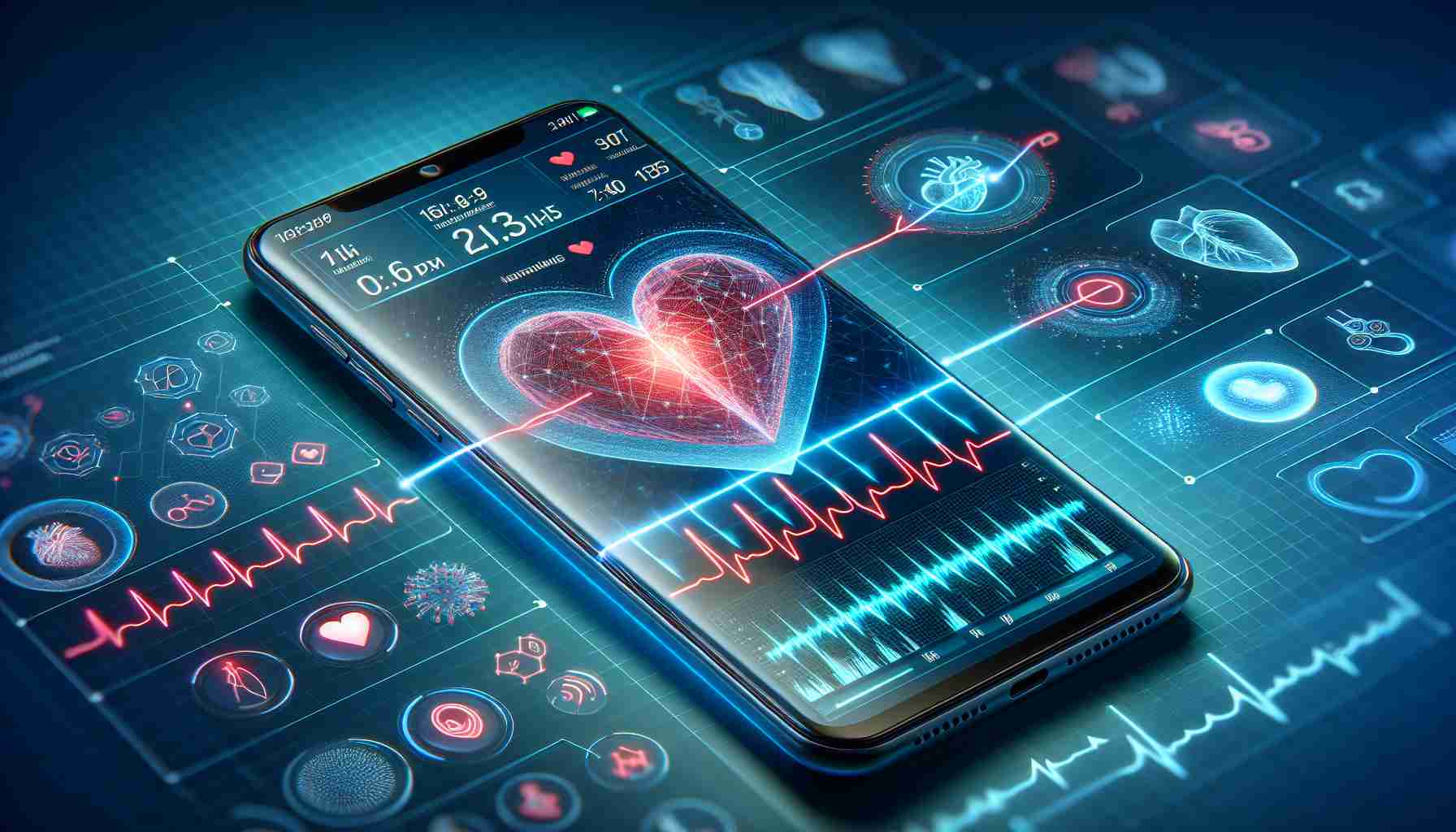Smartphone Sensors Show Promise in Heart Health Monitoring
A multidisciplinary team at the University of Turku along with the health technology firm CardioSignal have made a breakthrough using smartphones for cardiac analysis. The collaborative study, including Finnish and American organizations, signals a new approach to monitoring heart health. Worldwide, heart failure is a widespread issue that significantly benefits from early diagnosis and treatment, yet distinguishing its symptoms from other ailments poses challenges.
Gyrocardiography, a non-invasive method for evaluating heart vibrations, has been refined to function through a smartphone. By harnessing the smartphone’s motion sensors, the technology captures vibrations imperceptible to traditional stethoscopes.
A significant study involving 1,000 participants—200 with diagnosed heart failure—put this innovative method to the test. The collected data from heart failure patients was compared with those free from cardiac issues, revealing that unique changes occur in the motion sensor data in cases of heart failure. The researchers confirmed that utilizing the phone’s gyroscope and accelerometer provides highly accurate analysis.
The implications of this research are profound, potentially paving the way for healthcare providers to adopt this technology for preventative care. Detailed in the Journal of American Cardiology, the study’s findings are encapsulated in the publication “Smartphone-Based Recognition of Heart Failure by Means of Microelectromechanical Sensors,” heralding an accessible method for future heart condition assessments.
Important Questions and Answers:
– How does the use of gyrocardiography in smartphones differ from traditional heart monitoring methods?
Gyrocardiography makes use of the smartphone’s built-in gyroscopes and accelerometers to detect heart vibrations that are not discernible with a normal stethoscope. Unlike traditional methods such as echocardiography or ECG which require specialized equipment and medical expertise, this smartphone-based technology enables heart monitoring from virtually anywhere, making it more accessible and convenient for patients.
– What challenges might arise with the implementation of smartphone-based heart monitoring?
A key challenge is the variability of smartphone hardware, which can affect the consistency and reliability of gyrocardiography readings. Additionally, the user’s proficiency in correctly using the application can influence the accuracy of the data. Ensuring privacy and data security for sensitive health information collected via smartphones is also a crucial concern. There’s also a potential risk of over-reliance on technology and self-diagnosis, highlighting the need for professional medical interpretation.
– Are there any controversies associated with smartphone-based heart failure detection?
One area of controversy could involve the reliance on technology which may not yet have the full confidence of the medical community due to its relative novelty. There might be skepticism regarding its accuracy compared to established diagnostic tools. Concerns could also arise around the potential for false positives or negatives, leading to unnecessary anxiety or complacency among users.
Advantages and Disadvantages:
Advantages:
– Accessibility: Patients can monitor their heart health using their own smartphones without needing to visit medical facilities.
– Early Detection: Continuous monitoring could lead to earlier detection of heart failure, allowing for timely interventions.
– Cost-Effectiveness: Using existing technology can reduce the costs associated with specialized heart monitoring devices.
Disadvantages:
– Standardization Issues: Variations in smartphone sensors across different models could affect data accuracy.
– Data Security: Storing medical data on smartphones raises concerns about data privacy and the risk of breaches.
– Dependence on Tech: Over-reliance on technology might lead to underestimating the importance of professional medical guidance.
Related Links:
– For more information related to heart health and technology, consider visiting reputable medical websites such as the American Heart Association at heart.org.
– The University of Turku, where the study originated, provides broad insights into ongoing research at utu.fi.
– Information about the latest advancements in health technology can often be found through organizations like the American College of Cardiology at acc.org.
